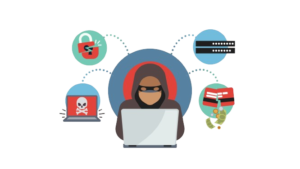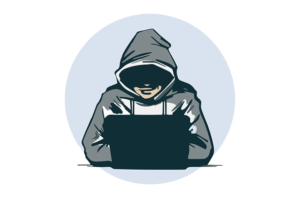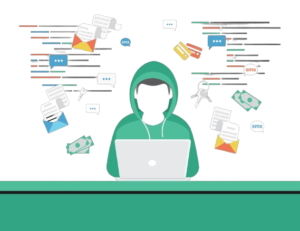Ethical Hacking: the Skills for Cybersecurity
Introduction to Ethical Hacking
Ethical hacking, often referred to as penetration testing or white-hat hacking, is the practice of testing computer systems, networks, or applications for vulnerabilities to ensure their security. Unlike malicious hackers, Best Ethical Hacking their train best Institute and skills to identify weaknesses and help organizations strengthen their defenses.

What is Ethical Hacking?
Ethical hacking involves simulating cyber attacks to uncover security flaws. By mimicking the tactics of malicious hackers, ethical hackers can assess the effectiveness of existing security measures and recommend improvements.
Importance of Ethical Hacking
In an increasingly digital world, the threat of cyber attacks is ever-present. Ethical hacking plays a crucial role in safeguarding sensitive information, preventing data breaches, and maintaining trust in online systems.
Training Ethical Hacking
Training ethical hacking requires dedication, continuous training, and access to reliable resources.
Resources for Ethical Hacking
There are various resources available for aspiring ethical hackers, including online courses, books, forums, and hands-on training platforms. These resources cover topics such as network security, cryptography, and penetration testing.
Importance of Continuous Training
Cyber threats are constantly evolving, making continuous learning essential for ethical hackers. Staying updated on the latest techniques and tools ensures proficiency in identifying and mitigating emerging security risks.
Ethical Hacking Skills
Becoming proficient in ethical hacking requires a combination of technical and soft skills.
Technical Skills Needed
Ethical hackers need to have a deep understanding of computer systems, networks, and programming languages. Proficiency in tools such as Metasploit, Wireshark, and Nmap is also essential for conducting effective security assessments.
Soft Skills for Ethical Hackers
In addition to technical skills, ethical hackers must possess strong analytical thinking, problem-solving, and communication skills. Building rapport with clients and effectively communicating findings are critical aspects of the job.
Cybersecurity Training
Cybersecurity training provides individuals with the knowledge and skills needed to protect digital assets from cyber threats.
Importance of Cybersecurity Training
Cyber attacks continue to pose significant risks to organizations worldwide. Comprehensive cybersecurity training programs help individuals develop the expertise needed to identify vulnerabilities, mitigate risks, and respond to security incidents effectively.
Types of Cybersecurity Training
Cybersecurity training programs vary in focus and complexity, ranging from basic awareness training for employees to advanced courses in penetration testing and incident response.
Real-world Applications of Ethical Hacking
Ethical hacking has various real-world applications in enhancing cybersecurity posture.
Penetration Testing
Ethical hackers use penetration testing to assess the effectiveness of security controls and provide recommendations for improvement.
Vulnerability Assessment
Vulnerability assessments involve identifying weaknesses in software, hardware, or configurations that could be exploited by attackers. Ethical hackers conduct vulnerability assessments to help organizations prioritize remediation efforts and reduce the risk of security incidents.
Ethical Hacking Certifications
Obtaining certifications is a valuable way for ethical hackers to demonstrate their expertise and enhance their credibility.
Popular Certifications
Certifications such as Certified Ethical Hacker (CEH), Offensive Security Certified Professional (OSCP), and CompTIA Security+ are highly regarded in the cybersecurity industry.
Benefits of Certification
Earning certifications not only validates technical skills but also provides access to exclusive job opportunities and higher earning potential.
Ethics in Ethical Hacking
Ethical hackers are bound by legal and moral considerations in their practice.
Legal and Moral Considerations
Ethical hackers must adhere to laws and regulations governing cybersecurity practices in their respective jurisdictions. Respecting user privacy and obtaining proper authorization before conducting security assessments are essential ethical considerations.
Professional Codes of Conduct
Professional organizations such as the EC-Council and (ISC)² have established codes of conduct that ethical hackers are expected to follow. These codes emphasize integrity, confidentiality, and professionalism in all aspects of the job.
Challenges in Ethical Hacking
Ethical hackers face various challenges in their line of work, including navigating an ever-evolving threat landscape and keeping up with new techniques and technologies.
Evolving Threat Landscape
Cyber threats are constantly evolving, requiring ethical hackers to stay vigilant and adapt their strategies accordingly. Zero-day vulnerabilities, advanced persistent threats, and social engineering attacks are among the many challenges faced by security professionals.

Keeping Up with New Techniques
The cybersecurity landscape is dynamic, with new tools and techniques emerging regularly. Ethical hackers must invest time and effort in staying updated on the latest trends and technologies to remain effective in their roles.
Future of Ethical Hacking
As technology continues to advance, the demand for skilled ethical hackers is expected to grow.
Emerging Trends
Trends such as cloud computing, Internet of Things (IoT), and artificial intelligence present both opportunities and challenges for cybersecurity professionals. Ethical hackers will play a crucial role in securing these emerging technologies and mitigating associated risks.
Career Opportunities
Best Ethical hacking institute offers diverse career opportunities in various industries, including finance, healthcare, and government. As organizations prioritize cybersecurity, the demand for skilled professionals will continue to rise.
Conclusion
Ethical hacking is a vital component of modern cybersecurity strategies, helping organizations identify and mitigate security risks before they can be exploited by malicious actors.
